- Home
- Fredric Brown
Night of the Jabberwock Page 2
Night of the Jabberwock Read online
Page 2
I wondered how many times he’d said that in the ten years he’d worked for me, and then I got to wondering how many times I’d thought it, which would be——
“How much is fifty-two times twenty-three, Pete?” I asked him.
“Huh? A hell of a lot. Why?”
I figured it myself. “Fifty times twenty-three is—one thousand one hundred and fifty; twice twenty-three more makes eleven ninety-six. Peter, eleven hundred and ninety-six times have I put that paper to bed on a Thursday night and never once was there a really big hot news story in it.”
“This isn’t Chicago, Doc. What do you expect, a murder?”
“I’d love a murder,” I told him.
It would have been funny if Pete had said, “Doc, how’d you like three in one night?”
But he didn’t of course. In a way, though, he said something that was even funnier. He said, “But suppose it was a friend of yours? Your best friend, say, Carl Trenholm. Would you want him killed just to give the Clarion a story?”
“Of course not,” I said. “Preferably somebody I don’t know at all—if there is anybody in Carmel City I don’t know at all. Let’s make it Yehudi.”
“Who’s Yehudi?” Pete asked.
I looked at Pete to see if he was kidding me, and apparently he wasn’t, so I explained: “The little man who wasn’t there. Don’t you remember the rhyme?
I saw a man upon the stair,
A little man who was not there.
He was not here again today;
Gee, I wish he’d go away.”
Pete laughed. “Doc, you get crazier every day. Is that Alice in Wonderland, too, like all the other stuff you quote when you get drinking?”
“This time, no. But who says I quote Lewis Carroll only when I’m drinking? I can quote him now, and I’ve hardly started drinking for tonight—why, as the Red Queen said to Alice, ‘One has to do this much drinking to stay in the same place.’ But listen and I’ll quote you something that’s really something:
’Twas brillig and the slithy toves
Did gyre and gimble in the wabe——”
Pete stood up. “Jabberwocky, from Alice Through the Looking-Glass,” he said. “If you’ve recited that to me once, Doc, it’s been a hundred times. I damn near know it myself. But I got to go, Doc. Thanks for the drink.”
“Okay, Pete, but don’t forget one thing.”
“What’s that?”
I said:
“Beware the Jabberwock, my son!
The jaws that bite, the claws that catch!
Beware the Jubjub bird, and shun
The frumious——”
Smiley was calling to me, “Hey, Doc!” from over beside the telephone and I remembered now that I’d heard it ring half a minute before. Smiley yelled, “Telephone for you, Doc,” and laughed as though that was the funniest thing that had happened in a long time.
I stood up and started for the phone, telling Pete good night en route.
I picked up the phone and said, “Hello” to it and it said “Hello” back to me. Then it said, “Doc?” and I said, “Yes.”
Then it said, “Clyde Andrews speaking, Doc.” His voice sounded quite calm. “This is murder.”
Pete must be almost to the door by now; that was my first thought. I said, “Just a second, Clyde,” and then jammed my hand over the mouthpiece while I yelled, “Hey, Pete!”
He was at the door, but he turned.
“Don’t go,” I yelled at him, the length of the bar. “There’s a murder story breaking. We got to remake!”
I could feel the sudden silence in Smiley’s Bar. The conversation between the two other customers stopped in the middle of a word and they turned to look at me. Pete, from the door, looked at me. Smiley, a bottle in his hand, turned to look at me—and he didn’t even smile. In fact, just as I turned back to the phone, the bottle dropped out of his hand and hit the floor with a noise that made me jump and close my mouth quickly to keep my heart from jumping from it. That bottle crashing on the floor had sounded—for a second—just like a revolver shot.
I waited until I felt that I could talk again without stammering and then I took my hand off the mouthpiece of the phone and said calmly, or almost calmly, “Okay, Clyde, go ahead.”
CHAPTER TWO
“Who are you, aged man?” I said.
“And how is it you live?”
His answer trickled through my head,
Like water through a sieve.
“YOU’VE gone to press, haven’t you, Doc?” Clyde’s voice said. “You must have because I tried phoning you at the office first and then somebody told me if you weren’t there, you’d be at Smiley’s, but that’d mean you were through for the——”
“That’s all right,” I said. “Get on with it.”
“I know it’s murder, Doc, to ask you to change a story when you’ve already got the paper ready to run and have left the office, but—well, that rummage sale we were going to have Tuesday; it’s been called off. Can you still kill the article? Otherwise a lot of people will read about it and come around to the church Tuesday night and be disappointed.”
“Sure, Clyde,” I said. “I’ll take care of it.”
I hung up. I went over to the table and sat down. I poured myself a drink of whisky and when Pete came over I poured him one.
He asked me what the call had been and I told him.
Smiley and his two other customers were still staring at me, but I didn’t say anything until Smiley called out, “What happened, Doc? Didn’t you say something about a murder?”
I said, “I was just kidding, Smiley.” He laughed.
I drank my drink and Pete drank his. He said, “I knew there was a catch about getting through early tonight. Now we got a nine-inch hole in the front page all over again. What are we going to put in it?”
“Damned if I know,” I told him. “But the hell with it for tonight. I’ll get down when you do in the morning and figure something out then.”
Pete said, “That’s what you say, now, Doc. But if you don’t get down at eight o’clock, what’ll I do with that hole in the page?”
“Your lack of faith horrifies me, Pete. If I say I’ll be down in the morning, I will be. Probably.”
“But if you’re not?”
I sighed. “Do anything you want.” I knew Pete would fix it up somehow if I didn’t get down. He’d drag something from a back page and plug the back page with filler items or a subscription ad.
It was going to be lousy because we had one sub ad in already and too damn much filler; you know, those little items that tell you the number of board feet in a sequoia and the current rate of mullet manufacture in the Euphrates valley. All right in small doses, but when you run the stuff by the column——
Pete said he’d better go, and this time he did. I watched him go, envying him a little. Pete Corey is a good printer and I pay him just about what I make myself. We put in about the same number of hours, but I’m the one who has to worry whenever there’s any worrying to be done, which is most of the time.
Smiley’s other customers left, just after Pete, and I didn’t want to sit alone at the table, so I took my bottle over to the bar.
“Smiley,” I said, “do you want to buy a paper?”
“Huh?” Then he laughed. “You’re kidding me, Doc. It isn’t off the press till tomorrow noon is it?”
“It isn’t,” I told him. “But it’ll be well worth waiting for this week. Watch for it, Smiley. But that isn’t what I meant.”
“Huh? Oh, you mean do I want to buy the paper. I don’t think so, Doc. I don’t think I’d be very good at running a paper. I can’t spell very good, for one thing. But look, you were telling me the other night Clyde Andrews wanted to buy it from you. Whyn’t you sell it to him, if you want to sell it?”
“Who the devil said I wanted to sell it?” I asked him. “I just asked if you wanted to buy it.”
Smiley looked baffled.
“Doc,” he said. “I neve
r know whether you’re serious or not. Seriously, do you really want to sell out?”
I’d been wondering that. I said slowly, “I don’t know, Smiley. Right now, I’d be damn tempted. I think I hate to quit mostly because before I do I’d like to get out one good issue. Just one good issue out of twenty-three years.”
“If you sold it, what’d you do?”
“I guess, Smiley, I’d spend the rest of my life not editing a newspaper.”
Smiley decided I was being funny again, and laughed.
The door opened and Al Grainger came in. I waved the bottle at him and he came down the bar to where I was standing, and Smiley got another glass and a chaser of water; Al always needs a chaser.
Al Grainger is just a young squirt—twenty-two or -three—but he’s one of the few chess players in town and one of the even fewer people who understands my enthusiasm for Lewis Carroll. Besides that, he’s by way of being a Mystery Man in Carmel City. Not that you have to be very mysterious to achieve that distinction.
He said, “Hi, Doc. When are we going to have another game of chess?”
“No time like the present, Al. Here and now?”
Smiley kept chessmen on hand for screwy customers like Al Grainger and Carl Trenholm and myself. He’d bring them out, always handling them as though he expected them to explode in his hands, whenever we asked for them.
Al shook his head. “Wish I had time. Got to go home and do some work.”
I poured whisky in his glass and spilled a little trying to fill it to the brim. He shook his head slowly. “The White Knight is sliding down the poker,” he said. “He balances very badly.”
“I’m only in the second square,” I told him. “But the next move will be a good one. I go to the fourth by train, remember.”
“Don’t keep it waiting, Doc. The smoke alone is worth a thousand pounds a puff.”
Smiley was looking from one of us to the other. “What the hell are you guys talking about?” he wanted to know.
There wasn’t any use trying to explain. I levelled my finger at him. I said, “Crawling at your feet you may observe a bread-and-butter fly. Its wings are thin slices of bread-and-butter, its body a crust and its head is a lump of sugar. And it lives on weak tea with cream in it.”
Al said, “Smiley, you’re supposed to ask him what happens if it can’t find any.”
I said, “Then I say it would die of course and you say that must happen very often and I say it always happens.”
Smiley looked at us again and shook his head slowly. He said, “You guys are really nuts.” He walked down the bar to wash and wipe some glasses.
Al Grainger grinned at me. “What are your plans for tonight, Doc?” he asked. “I just might possibly be able to sneak in a game or two of chess later. You going to be home, and up?”
I nodded. “I was just working myself up to the idea of walking home, and when I get there I’m going to read. And have another drink or two. If you get there before midnight I’ll still be sober enough to play. Sober enough to beat a young punk like you, anyway.”
It was all right to say that last part because it was so obviously untrue. Al had been beating me two games out of three for the last year or so.
He chuckled, and quoted at me:
“‘You are old, Father William,’ the young man said,
’And your hair has become very white;
And yet you incessantly stand on your head—
Do you think, at your age, it is right?’”
Well, since Carroll had the answer to that, so did I:
“‘In my youth,’ Father William replied to his son,
I feared it might injure the brain;
But now that I’m perfectly sure I have none,
Why, I do it again and again.’”
Al said, “Maybe you got something there, Doc. But let’s quit alternating verses on that before you get to ‘Be off, or I’ll kick you down-stairs!’ Because I got to be off anyway.”
“One more drink?”
“I – think not, not till I’m through working. You can drink and think too. Hope I can do the same thing when I’m your age. I’ll try my best to get to your place for some chess, but don’t look for me unless I’m there by ten o’clock—half past at the latest. And thanks for the drink.”
He went out and, through Smiley’s window, I could see him getting into his shiny convertible. He blew the Klaxon and waved back at me as he pulled out from the kerb.
I looked at myself in the mirror back of Smiley’s bar and wondered how old Al Grainger thought I was. “Hope I can do the same thing when I’m your age,” indeed. Sounded as though he thought I was eighty, at least. I’ll be fifty-three my next birthday.
But I had to admit that I looked that old, and that my hair was turning white. I watched myself in the mirror and that whiteness scared me just a little. No, I wasn’t old yet, but I was getting that way. And, much as I crab about it, I like living. I don’t want to get old and I don’t want to die. Especially as I can’t look forward, as a good many of my fellow townsmen do, to an eternity of harp playing and picking bird-lice out of my wings. Nor, for that matter, an eternity of shovelling coal, although that would probably be the more likely of the two in my case.
Smiley came back. He jerked his finger at the door. “I don’t like that guy, Doc,” he said.
“Al? He’s all right. A little wet behind the ears, maybe. You’re just prejudiced because you don’t know where his money comes from. Maybe he’s got a printing press and makes it himself. Come to think of it, I’ve got a printing press. Maybe I should try that myself.”
“Hell, it ain’t that, Doc. It’s not my business how a guy earns his money—or where he gets it if he don’t earn it. It’s the way he talks. You talk crazy, too, but—well, you do it in a nice way. When he says something to me I don’t understand he says it in a way that makes me feel like a stupid bastard. Maybe I am one, but——”
I felt suddenly ashamed of all the things I’d ever said to Smiley that I knew he wouldn’t understand.
I said, “It’s not a matter of intelligence, Smiley. It’s merely a matter of literary background. Have one drink with me, and then I’d better go.”
I poured him a drink and—this time—a small one for myself. I was beginning to feel the effects, and I didn’t want to get too drunk to give Al Grainger a good game of chess if he dropped in.
I said, for no reason at all, “You’re a good guy, Smiley,” and he laughed and said, “So are you, Doc. Literary background or not, you’re a little crazy, but you’re a good guy.”
And then, because we were both embarrassed at having caught ourselves saying things like that, I found myself staring past Smiley at the calendar over the bar. It had the usual kind of picture one sees on bar room calendars—an almost too voluptuous naked woman—and it was imprinted by Beal Brothers Store.
It was just a bit of bother to keep the eyes focused on it, I noticed, although I hadn’t had enough to drink to affect my mind at all. Right then, for instance, I was thinking of two things at one and the same time. Part of my brain, to my disgust, persisted in wondering if I could get Beal Brothers to start running a quarter page ad instead of an eighth page; I tried to squelch the thought by telling myself that I didn’t care, tonight, whether anybody advertised in the Clarion at all, and that part of my brain went on to ask me why, damn it, if I felt that way about it, I didn’t get out from under while I had the chance by selling the Clarion to Clyde Andrews. But the other part of my mind kept getting more and more annoyed by the picture on the calendar, and I said, “Smiley, you ought to take down that calendar. It’s a lie. There aren’t any women like that.”
He turned around and looked at it. “Guess you’re right. Doc; there aren’t any women like that. But a guy can dream, can’t he?”
“Smiley,” I said, “if that’s not the first profound thing you’ve said, it’s the most profound. You are right, moreover. You have my full permission to leave the calendar up.�
�
He laughed and moved along the bar to finish wiping glasses, and I stood there and wondered why I didn’t go on home. It was still early, a few minutes before eight o’clock. I didn’t want another drink, yet. But by the time I got home, I would want one.
So I got out my wallet and called Smiley back. We estimated how many drinks I’d poured out of the bottle and I settled for them, and then I bought another bottle, a full quart, and he wrapped it for me.
I went out with it under my arm and said “So long, Smiley,” and he said “So long, Doc,” just as casually as though, before the gibbering night that hadn’t started yet was over, he and I would not—but let’s take things as they happened.
The walk home.
I had to go past the post office anyway, so I stopped in. The mail windows were closed, of course, but the outer lobby is always left open evenings so those who have post office boxes can get mail out of them.
I got my mail—there wasn’t anything important in it—and then stopped, as I usually do, by the bulletin board to look over the notices and the wanted circulars that were posted there.
There were a couple of new ones and I read them and I studied the pictures. I’ve got a good memory for faces, even ones I’ve just seen pictures of, and I’d always hoped that some day I’d spot a wanted criminal in Carmel City and get a story out of it, if not a reward.
A few doors farther on I passed the bank and that reminded me about its president, Clyde Andrews, and his wanting to buy the paper from me. He didn’t want to run it himself, of course; he had a brother somewhere in Ohio who’d had newspaper experience and who would run the paper for Andrews if I sold it to him.
The thing I liked least about the idea, I decided, was that Andrews was in politics and if he controlled the Clarion, the Clarion would back his party. The way I ran it, it threw mud at both factions when they deserved it, which was often, and handed either one an occasional bouquet when deserved, which was seldom. Maybe I’m crazy—other people than Smiley and Al have said so—but that’s the way I think a newspaper should be run, and especially when it’s the only paper in a town.

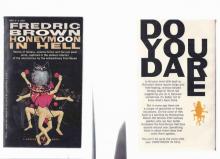 Hall of Mirrors
Hall of Mirrors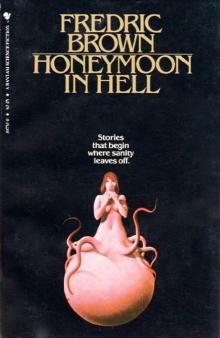 Honeymoon in Hell
Honeymoon in Hell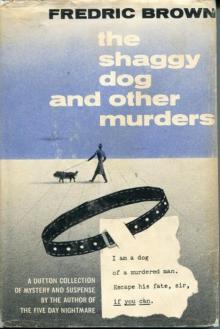 The Shaggy Dog and Other Murders
The Shaggy Dog and Other Murders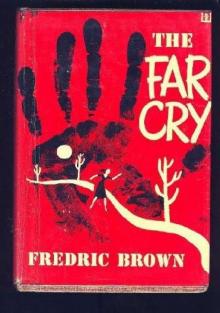 The Far Cry
The Far Cry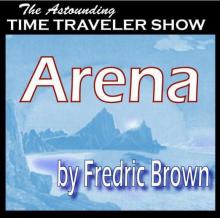 Arena
Arena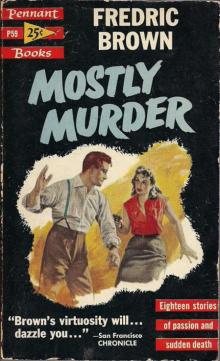 Mostly Murder
Mostly Murder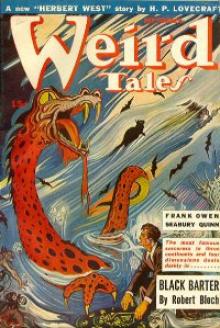 The Geezenstacks
The Geezenstacks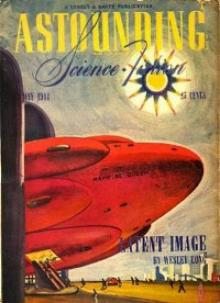 The Yehudi Principle
The Yehudi Principle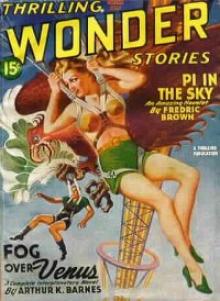 Pi in the Sky
Pi in the Sky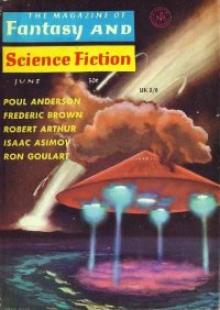 Eine Kleine Nachtmusik
Eine Kleine Nachtmusik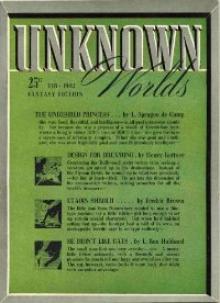 Etaoin Shrdlu
Etaoin Shrdlu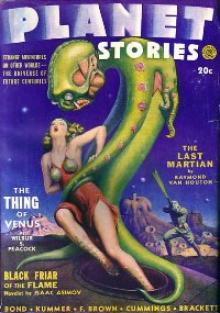 The Star Mouse
The Star Mouse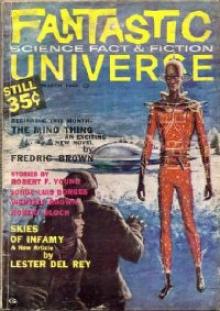 The Mind Thing
The Mind Thing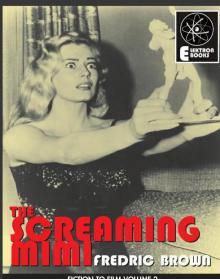 The Screaming Mimi
The Screaming Mimi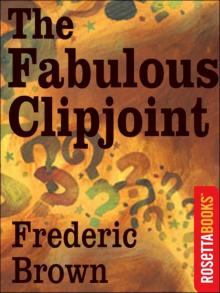 The Fabulous Clipjoint
The Fabulous Clipjoint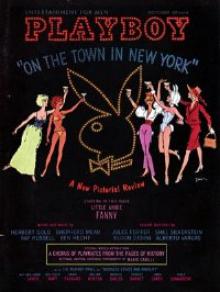 Puppet Show
Puppet Show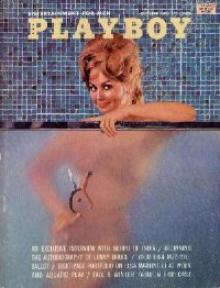 It Didn't Happen
It Didn't Happen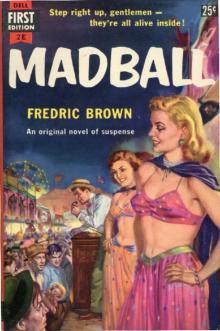 Madball
Madball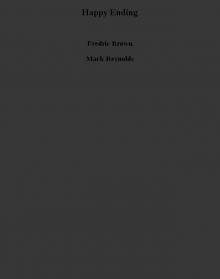 Happy Ending
Happy Ending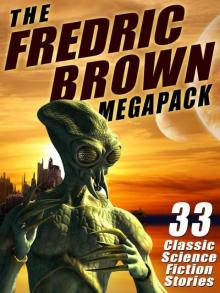 The Fredric Brown Megapack: 33 Classic Science Fiction Stories
The Fredric Brown Megapack: 33 Classic Science Fiction Stories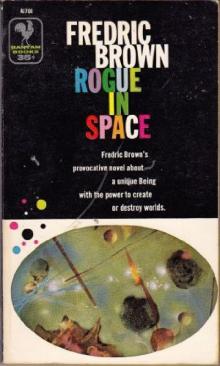 Rogue in Space
Rogue in Space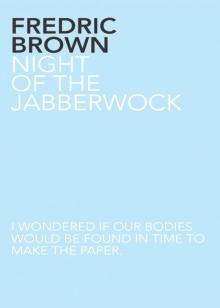 Night of the Jabberwock
Night of the Jabberwock The Dead Ringer
The Dead Ringer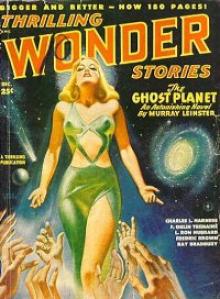 Knock
Knock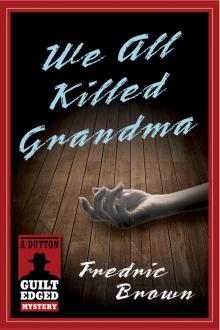 We All Killed Grandma
We All Killed Grandma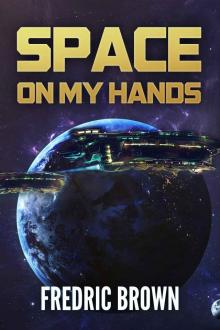 Space On My Hands
Space On My Hands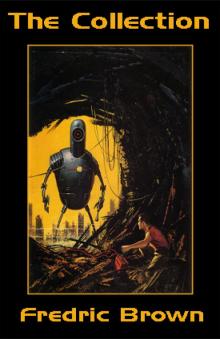 The Collection
The Collection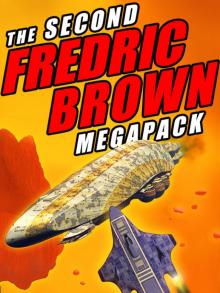 The Second Fredric Brown Megapack: 27 Classic Science Fiction Stories
The Second Fredric Brown Megapack: 27 Classic Science Fiction Stories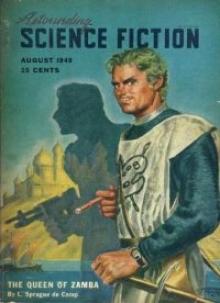 Letter to a Phoenix
Letter to a Phoenix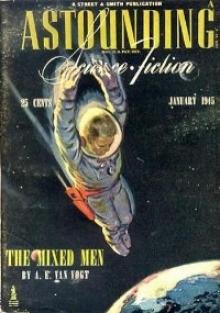 The Waveries
The Waveries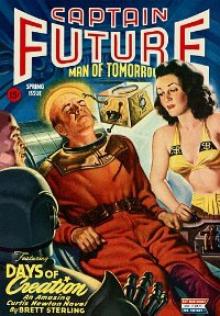 Nothing Sirius
Nothing Sirius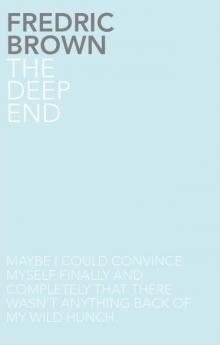 The Deep End
The Deep End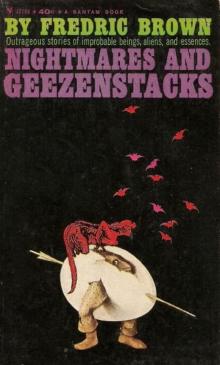 Nightmares & Geezenstacks
Nightmares & Geezenstacks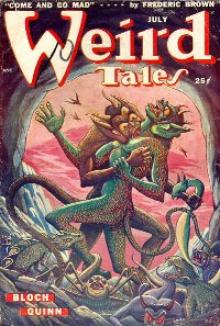 Come and Go Mad
Come and Go Mad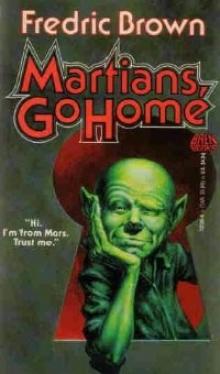 Martians, Go Home
Martians, Go Home